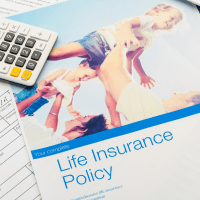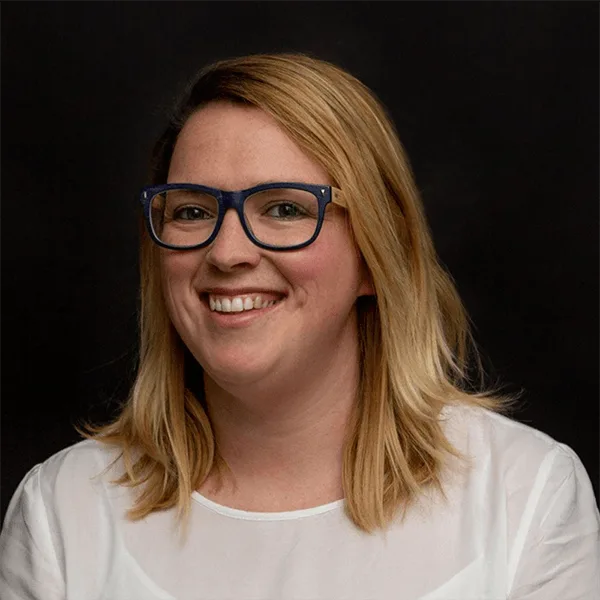
New to life insurance
We currently don't have that product, but here are others to consider:
How we picked theseIf you're thinking about life insurance and don't know where to start, Finder can help you find the right policy to protect you and your loved ones. We get that thinking about a time where you're no longer here can be uncomfortable, which is why our comparison tool makes things as easy as possible.
We help you compare things like maximum payout amounts, TPD cover, funeral benefits and other optional features you may want added onto your policy.
Life insurance is an insurance that provides financial protection to you and your loved ones if you were to pass away or if you are significantly injured or diagnosed with a terminal illness and can no longer work.
It's your safety net during life's most unpredictable moments.
The average cost of a life insurance policy is $1,258 annually, according to Finder research of 11 providers.
The cost of your life insurance premium will depend on the following:
The cost of life insurance is highly dependent on personal factors so your own annual premium is likely to be different to our average cost. This information should be used as a guide only.
$148
Price based on 140+ responses about their monthly premium in January 2026.
TPD covers you if you get severely injured or sick. For example, if you become blind or paralysed after a car accident and become permanently disabled.
Typical cover range:$50,000 to $5 million.

Trauma cover, sometimes called critical illness cover, is a policy add-on that pays a lump sum if you're diagnosed with a major medical condition, such as cancer or a heart attack.
Typical cover range:$500,000 to $2 million.

Income protection insurance pays a monthly benefit if you're unable to work due to illness or injury. Usually, it will only pay up to 70% or 75% of your typical wage for a period of 2 or 5 years.

"I've never really thought about my life insurance, but after having a baby and buying a house in the same year I felt now was the time I needed to take out cover. Having a policy that would cover my mortgage payments is one less thing I now need to worry about."
When you sit down to compare life insurance it helps to start with a few key questions:
Asking these questions gives you a clear picture of the type and level of cover you may need. From there, you can compare life insurance policies side by side to weigh up the costs, features and benefits that best match your circumstances.
When you compare life insurance, premiums are one of the biggest factors to look at. The cost you pay isn't just about today's price - it's also about how the structure of those premiums will affect your budget over time.
Because a life insurance policy can last for decades, understanding whether costs rise each year or stay fixed can make a big difference to affordability in the long run.
Premiums matter, but the real value of life insurance lies in its features. The inclusions, exclusions and benefit limits all determine how useful the cover will be when your family needs it most. By taking the time to compare life insurance features alongside costs, you'll be able to find a policy that balances affordability with meaningful protection.
We get it. Purchasing life insurance is not the most glamorous thing to shop for, but it's essential to get it right. When you've found an insurer you like, ensure you read through the PDS so you fully understand how your policy works. This can prevent misunderstandings or delays if you need to make a claim or a change to your policy.
Your life insurance should never be a "set and forget" product. Life insurance is meant to reflect your lifestyle, which means it should be reviewed whenever you hit a major milestone, like purchasing a house or starting a family. It's important to ensure your policy's cover always aligns with your current living situation.
Once you turn 25 and have a balance of at least $6,000, you will automatically receive life insurance through your superannuation. This typically includes death cover, TPD and income protection insurance. While there are some perks for relying on your super's life insurance, cover is generally limited, plus your premiums are deducted from your super balance.
Life Insurance is a little complicated and a lot overwhelming. That's why we made the Finder Score, to make it easier to compare Life Insurance products against each other.
We have assessed over 30 products and assign each product a score out of 10 based on 13 features, including price.
Remember that Finder Score is just one factor to consider. Look at other aspects like fees, features, benefits and risks to make sure a product is suitable for you. Double-check details that matter to you before applying or buying.
To be eligible for a Finder Score, providers must provide us with quotes. We use the average price across 12 personas. The personas we collect quotes and use for the purpose of Finder Score are:
The Finder Score methodology is designed by our insights team and reviewed by our editorial team. We review the products objectively. Commercial partnerships do not affect the score.
Budget Direct's life insurance offers a high maximum cover limit, decent policy add-ons and competitively-priced cover.
Read our comprehensive guide to finding the best life insurance policy for your situation.
Read our comprehensive review of ahm Life Insurance to find out if it's right for you.
Here are some of the health reward programs and discount schemes available from Australian life insurance brands.
Compare TAL life insurance policies and receive a quote for cover for the different policy options available.
Find the latest life insurance deals and discounts from Australian brands.
Choose a flexible life insurance policy that meets your needs with Medibank life insurance.
Compare policies on offer from one of Australia's leading general insurance providers, AAMI.
Having the right life insurance policy is invaluable if something happens to you unexpectedly. Find out what makes your policy worthwhile.
Looking for a direct insurance company that offers affordable, straightforward cover options? Discover the benefits of NobleOak life insurance.